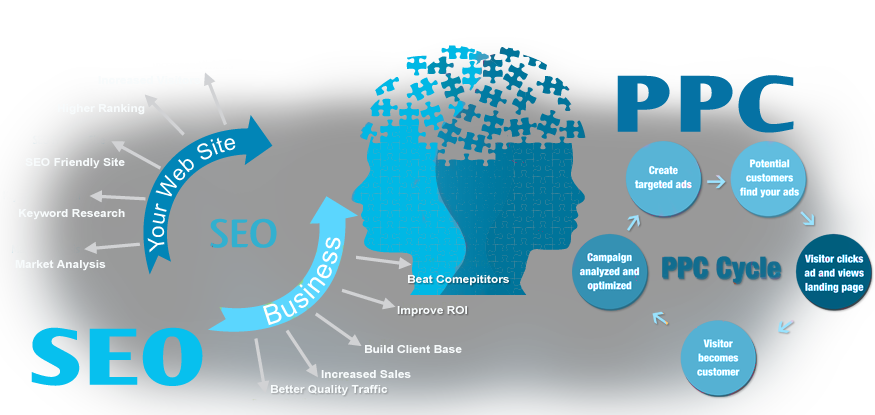Picture Courtesy: Wally Nussbaumer, my friend from Ottawa.
“Little things hurt” the proverb is true if we consider
the latest Google Algorithmic update icon- Hummingbird, the world’s smallest bird.
In the month of September 2013, Google launched the brand
new Algorithmic update Hummingbird. It was a not a change, but a new algorithm
that helped Google to pull the search results from the vast knowledge database. Hummingbird was a big update after caffeine in 2010.
Hummingbird affected more than 90 percent of the search
results down the lane. That is no doubt a large chunk compared to Google Panda,
which affected hardly 12 percent of the rankings. Experts are of the opinion
that Google never released Hummingbird in September it was just an
announcement, as in reality the algorithm has been running for several weeks
prior to its announcement.
Now all the dust settled and the points on Hummingbird has
cleared out. And Google gave us clues on how it works, it is our responsibility
to gauge larger affects beforehand as Google with come up with more updates and those can be huge blows to
search world.
Have a quick view on Google’s Hummingbird from this
infographic by HubShout.com to know why content
marketers should shift their focus from keyword search to user-intent search.

It’s Time to Be
Semantic
Stop focusing on keywords it's time to be semantic. Semantic,
what's that? Semantic refers to meaning or definition of core keywords. This is
the user’s main intent or query, which they look out or search. This aspect of
Hummingbird has created a long list of implication in the content marketing
sphere.
Semantic search suggest choice of pages based on searchers
main query and not on keyword-based result. This has given search engine a lot
of information on how to serve the results that users are looking. Smart
content marketers can utilize this to mitigate more traffic.
Prepare Snacky
Contents, Don’t Overcook It with Keywords
We come across websites built or structured around some
basic keywords. With their title tags optimized with specific keywords and the
content too written around them. Doesn't it look overcooked with too many
keywords of same type? Hope you remember keyword density!
Well, keyword density is yet not obsolete, but if you like
to embrace Hummingbird you have to do away with the bad habit of over-stuffing
your content with keywords. Prepare content that focus on the customer intent,
something build on personas. For years, contents are developing on personas and
Hummingbird is just an approach to re-affirm it.
If you know the key persona of your content, it becomes
easier to know their intent, so have the right spice (semantic keyword list) to
make your content tastier.
The Eternal Fight Begins: Semantic Search vs. Keyword Search
With Hummingbird update, shaking the red flag, before the angry
bull (semantic search) it is going to make the matador (keyword-based search)
suffer a lot - this was the general thought. And, it was no wrong in it.
How?
Make a quick search with the word “burger”, Google will come back with pages that offer burger recipes, some cool restaurants and their current offers they have on burgers. Take a ride with semantic based search it will –
Make a quick search with the word “burger”, Google will come back with pages that offer burger recipes, some cool restaurants and their current offers they have on burgers. Take a ride with semantic based search it will –
- Figure out users intent. If you mention some ingredient such as ham, beef, mozzarella or seasoned bacon, then it confirms you want a recipe on burger.
- Even it looks for the users search history to confirm whether user is going to click on recipe or restaurant links.
- Will make queries on the users location to trace the nearest, best-optimized website offering home-delivered burgers.
Content Marketers –
What Does Semantic Search Means To Them?
When you start designing your website page content, optimize contents in this ways -
For restaurateurs - Do not insert “Burger Restaurant” in the
title tags. Rather use, “Burger restaurant in Tampa’s Ballast Point neighborhood."
For Marketers - If your company sells software, create
tags that will say how your software can solve problems, such as “Payroll
software for better small business payroll management” or “ payroll software offering employee
self-service”, just using “payroll software” won’t work this time.
Few Words To Tell You.....
We shared what we felt about Hummingbird
and its influence in the content marketing sphere of today. And we can affirm that content
marketing is more a mature form of marketing rather than a buzzword.
With Hummingbird, we can seek targeted set of audience,
social signals from the regular sharing platforms, keeping website fresh,
growing and increasing the authority. With hummingbird in action, most of the business
blog has started to re-calculate their moves from the beginning of 2014.
So, off with those creases on your forehead! Just change your
content strategy in the light of Google Hummingbird and diversify. Take a plunge
in the content marketing pool and freshen up your website!
WAIT!!
WAIT!!
Can you spare 9 more minutes from your jam-packed schedule, then you can have a bigger overview on Hummingbird Update and its effect on content marketing with this video from Koozai.

































